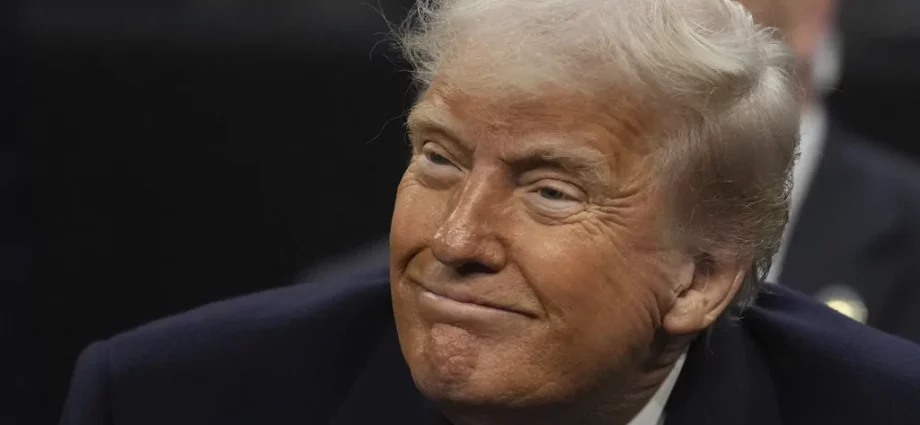President Donald Trump has long argued he is more competent than his political opponents, while they, in turn, contend he is more chaotic, a debate likely to continue as his national security team’s communications in a Signal group chat come under scrutiny.
This has been true since the early days of the 2016 Republican presidential primaries, when Trump contrasted his managerial experience with the politicians he was running against. Jeb Bush, the former Florida governor, famously labeled Trump a “chaos candidate.”
Trump soon dethroned Bush as the Republican front-runner and then drove him out of the race entirely en route to winning the presidency for the first time. That was an early referendum on competence vs. chaos.
But the chaotic nature of Trump’s first term upset his opponents and unnerved his softer supporters. When the pandemic struck, Democrats stepped up their attacks on his competence.
After four years of former President Joe Biden, with a crisis at the southern border, inflation at a 41-year high, and global instability, enough voters regained confidence in Trump’s competence while questioning whether 2017 to 2021 was really all that much more chaotic than what Biden offered.
TRUMP STANDS BY WALTZ AFTER HOUTHI GROUP CHAT LEAK
Now, Trump is back in office. There has been much less West Wing palace intrigue the second time around. The border situation is already much improved, and some tentative steps have been taken toward resolving the Russia-Ukraine war, among other global hot spots.
While speaking to reporters, Trump still frequently mentions his successor-turned-predecessor’s incompetence. “This was something that if we had a competent president, it would not have happened,” Trump said of Ukraine before a bilateral meeting with the NATO secretary-general. “The man was grossly incompetent.” Trump was referring to Biden.
Then came the revelation that a political journalist was invited into a group chat in which high-level Trump administration officials discussed imminent military strikes against the Houthis in Yemen. And not just any political journalist, but Jeffrey Goldberg, the Atlantic editor-in-chief who has been connected to some of the hottest, and most hotly disputed, anti-Trump stories of the last decade.
Goldberg published a story Monday alleging the Trump administration accidentally texted him its “war plans” for Yemen. The White House may dispute that precise characterization of what Goldberg obtained, but it hasn’t denied the veracity of the messages themselves.
In addition to the question of how Goldberg got added to this chat (he says he was added by national security adviser Michael Waltz, who has denied deliberately doing so) is the matter of why top Trump officials, all the way up to the vice president, were discussing these strikes on the Signal app in the first place.
Director of National Intelligence Tulsi Gabbard and CIA Director John Ratcliffe have already testified on Capitol Hill, though the hearing was planned before the story ran. Waltz has appeared on Fox News. Defense Secretary Pete Hegseth has also faced questions.
Trump has run a much tighter ship in his second term, with staffers more consistently aligned with his policies and priorities. While flooding the zone with executive orders and breaking news in the form of planned chaos, there is generally a method to the madness.
Yet for Democrats attacking the qualifications and, yes, the competence of Trump’s more unconventional personnel picks, the Signal conversation about a sensitive military operation that leaked to a reporter hostile to the administration is an inviting target.
Senate Minority Leader Chuck Schumer (D-NY), who had been facing calls to step down from his post after voting to avert a government shutdown over progressives’ objections, seized on what he called “one of the most stunning breaches of military intelligence I’ve read about in a very, very long time” in a Senate floor speech.
“It’s bad enough that a private citizen was added to this chain, but it’s far worse that sensitive military information was exchanged on an unauthorized application, especially when that sensitive military information was so, so important,” Schumer said.
Trump turned to Hegseth and Gabbard, among others, in no small part because more conventional national security picks, such as former Defense Secretary James Mattis, often thwarted him in his first term.
Now, Trump can once again expect to face the familiar questions Democrats have been raising, and he has been trying to swat down, since he has been in national politics.


